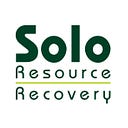Liquid Waste Disposal: How To Handle It And Dispose Of It Safely
Liquid waste disposal is an important aspect of responsible environmental management, especially for businesses and industries that generate significant volumes of liquid waste as a byproduct of their operations. The inadequate handling and disposal of liquid waste can have detrimental effects on the environment, public health, and regulatory compliance. This article aims to shed light on the best practices and procedures for managing liquid waste, ensuring it is safely and responsibly disposed of. Whether it’s liquid waste removal or utilising liquid waste services, adopting proper protocols is essential to safeguard our ecosystems and water resources.
Understanding Liquid Waste
Liquid waste refers to any liquid material discarded due to industrial, commercial, or domestic processes. This can encompass a wide range of substances, including chemicals, solvents, oils, wastewater, and more. The classification of liquid waste can vary based on its composition and potential hazards, and the proper identification and categorisation of liquid waste are fundamental to determining the appropriate disposal methods.
The Importance Of Responsible Liquid Waste Disposal
Improper disposal of liquid waste can have far-reaching consequences. The contamination of water sources, soil, and air poses threats to human health, wildlife, and ecosystems, and untreated liquid waste discharge into rivers, lakes, or oceans disrupts aquatic life and disturbs the natural balance of ecosystems.
In addition to environmental concerns, businesses that do not comply with liquid waste disposal regulations may face legal consequences and fines, damaging their reputation and potentially leading to operational disruptions. Therefore, it is imperative for businesses to prioritise safe and compliant liquid waste management to avoid detrimental outcomes.
Best Practices For Liquid Waste Handling
· Identify And Categorise Liquid Waste: Businesses must conduct thorough assessments to identify and categorise the types of liquid waste that they generate. Proper classification enables the adoption of suitable disposal methods and adherence to regulatory requirements.
· Implement Safe Storage Practices: Liquid waste should be stored in secure containers that are resistant to leaks and spills. Labelling containers with clear identifiers, such as the waste type and hazard level, helps minimise potential risks during handling and transportation.
· Adopt Pollution Prevention Strategies: Businesses should strive to minimise liquid waste generation through pollution prevention practices. By optimising processes and employing eco-friendly technologies, companies can significantly reduce their impact on the environment.
· Establish Regular Inspections: Conducting routine inspections of storage areas and waste handling procedures ensures any issues or potential hazards are promptly addressed. Early detection and remediation are key to preventing mishaps.
· Train Staff On Safe Handling: Properly trained personnel are vital to the safe handling of liquid waste. Employees should receive comprehensive training on handling, storage, and disposal protocols to minimise the risk of accidents and environmental contamination.
Liquid Waste Disposal Methods
· Recycling And Reuse: Whenever possible, businesses should explore opportunities to recycle or reuse liquid waste materials. Recycling will not only reduce the impact on the environment but also provide cost-saving benefits for the organisation.
· Treatment And Neutralisation: Some liquid waste may be treatable and rendered less harmful through neutralisation or chemical processes. Properly treated waste can then be disposed of safely in accordance with regulations.
· Incineration: Incineration is an effective method for disposing of certain types of liquid waste. Incineration facilities with advanced emission control technologies can minimise air pollution during the process.
· Landfill: Non-hazardous liquid waste that cannot be recycled or treated may be disposed of in landfill. This method, however, is considered a last resort.
Liquid Waste Services And Removal
Engaging with a professional liquid waste service provider such as Solo is an excellent approach for businesses seeking efficient and compliant waste disposal solutions. We have the expertise and resources to handle various types of liquid waste responsibly. Our services offer the following advantages:
· Expert Knowledge: Solo possesses specialised knowledge and experience in handling different waste types, ensuring that each material is managed appropriately.
· Compliance Assurance: Partnering with a reputable waste management such as Solo guarantees compliance with local, state, and federal regulations governing liquid waste disposal.
· Safe Transportation: We utilise specialised equipment and trained personnel to safely transport waste from the source to disposal or treatment facilities.
· Environmentally Responsible Disposal: Our services prioritise environmentally responsible waste disposal, aiming to minimise the impact on natural ecosystems and water resources.
In Conclusion
Proper liquid waste disposal is a shared responsibility of businesses, industries, and the community. By adopting best practices for handling, recycling, and disposing of liquid waste, we can protect the environment and ensure the well-being of future generations. Engaging with a professional liquid waste services company like Solo is a proactive step that businesses can make towards meeting regulatory requirements and safeguarding the planet’s natural resources. Together, we can pave the way for a cleaner and more sustainable future.
For obligation free advice on liquid waste please send us a message here or give us a call on 1300 GO SOLO (1300 46 76 56).
